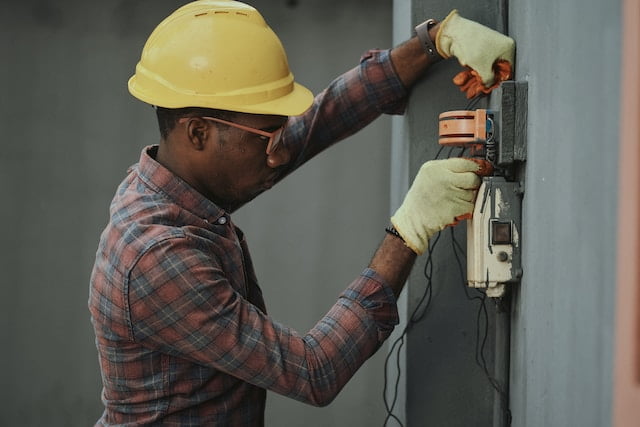Top 7 Property Management Practices to Avoid by Property Managers
In the realm of property management, maintaining harmonious relationships with residents is one of the important responsibilities of a property manager. However, if certain property management practices are mishandled, it can irk and frustrate the residents. In this article, we will discuss the top 7 property management practices to avoid by property managers. We will shed light on the top things done by property managers that can irritate or make residents angry.
1. Poor Communication
Effective communication is always the most important factor for a property manager to achieve success in property management. Residents can feel frustrated and uninformed when property managers fail to convey vital information and updates. Whether it is maintenance schedules, policy adjustments, or community events, transparent and timely communication plays a critical role in fostering a positive relationship between property managers and residents. Clear communication ensures that residents are always kept informed. As a result, it will contribute to a harmonious living environment where everyone feels valued.
2. Inconsistent Maintenance Standards
Consistency is key when it comes to maintaining communal spaces and amenities. Residents may experience dissatisfaction when property managers exhibit inconsistencies in their maintenance standards. Upholding a consistent and high-quality approach to maintenance is crucial for fostering a living environment that residents can take pride in. To ensure a positive living environment, property managers should prioritize uniform and diligent maintenance practices. If there is an urgent situation, always remember to deliver timely communication.

3. Unresponsive to Requests
Timely response to resident needs is a crucial aspect of property management. When property managers are unresponsive to repair requests, inquiries, or complaints, it can create a huge dissatisfaction among residents when the problems are never solved. Residents rely on property managers to be attentive when dealing with various issues. Ensuring a swift response is important for fostering an environment where residents feel valued and supported. When residents feel heard, it can enhance the trust and satisfaction they have in the management team.
4. Unpredictable Fee Increases
Issues related to money are always highly sensitive. Maintaining transparent financial communication is important for establishing positive relations between property managers and residents. Whether associated with utilities, maintenance, or other charges, unpredictable increases in fees can significantly contribute to resident frustration.
To cultivate a sense of understanding, property managers must prioritize financial transparency by providing clear explanations and advanced notice for any adjustments to management-related fees. This can help residents plan their budgets effectively and ensure that changes in fees are communicated with clarity. By consistently practicing financial transparency, property managers can build a foundation of trust with residents, contributing to a positive living experience and minimizing potential dissatisfaction caused by unexpected financial adjustments.
5. Inflexible Policies
While community policies are important for maintaining order, their stringent and inflexible enforcement can lead to resident frustration. Property managers should recognize the importance of balancing policies with an openness to resident feedback. A rigid adherence to rules without flexibility can create an unwelcoming atmosphere within the community.
By embracing a more adaptable approach and demonstrating an understanding of residents’ unique situations, property managers can foster a sense of fairness. This can ensure that community policies are perceived as reasonable and considerate, minimizing the potential for resident dissatisfaction. Striking a balance between enforcing policies and being responsive to residents’ needs contributes to a harmonious community where everyone feels heard and respected.
6. Lack of Resident Engagement
Fostering a vibrant sense of community requires active resident engagement, which is a key responsibility of property managers. Community events should be organized to encourage neighbour interactions and provide opportunities for resident involvement. Without these opportunities, it will lead to a disconnected living environment where residents feel isolated.
Property managers play a critical role in creating a community atmosphere where residents feel involved. Organizing events and facilitating social interactions not only enhance the overall living experience but also contribute to a sense of belonging. Property managers should prioritize initiatives that promote resident engagement, fostering a positive atmosphere that resonates with the desires of the community’s diverse population.

7. Inadequate Security Measures
Ensuring the safety and security of residents is paramount in effective property management. Property managers who overlook the implementation of robust security measures may contribute to heightened anxiety among residents. Every resident wants to feel secure within their community, and it is the responsibility of a property manager to meet their expectations.
Property managers must take proactive steps to enhance safety, including proper lighting, secure entry systems, and regular security updates. All of these steps are important for maintaining resident trust. By keeping residents informed about the security measures, property managers create an environment where residents can feel confident. Addressing security concerns is a testament to the property management team’s dedication to providing a safe living experience.
Conclusion
Effective property management requires a delicate balance of communication, responsiveness, and community-building efforts. By avoiding these common property management practices, property managers can cultivate positive and collaborative relationships with residents, fostering a community where residents feel valued.